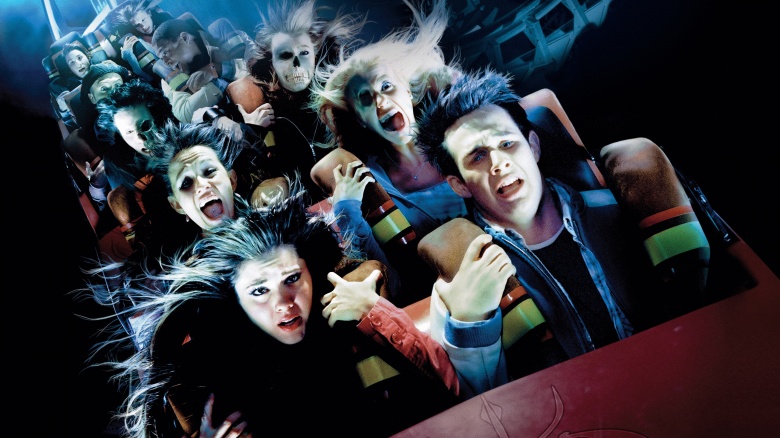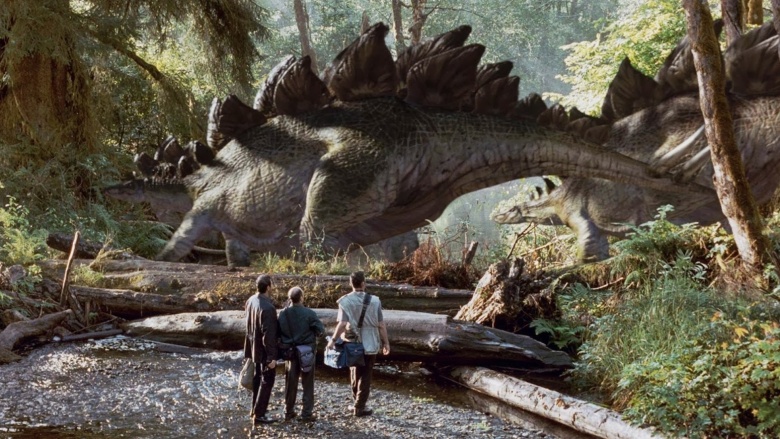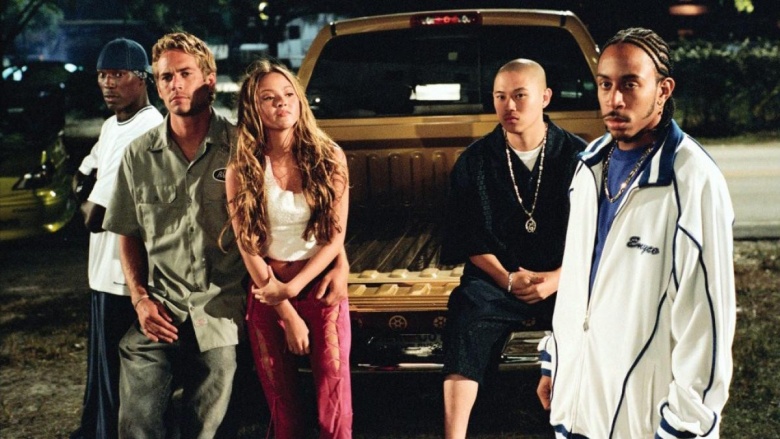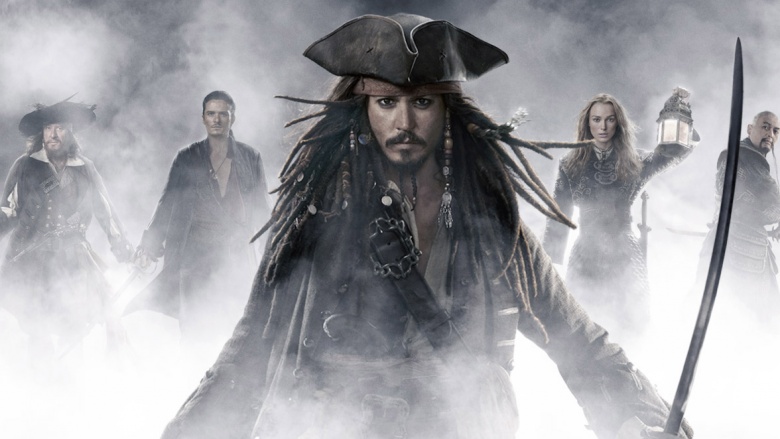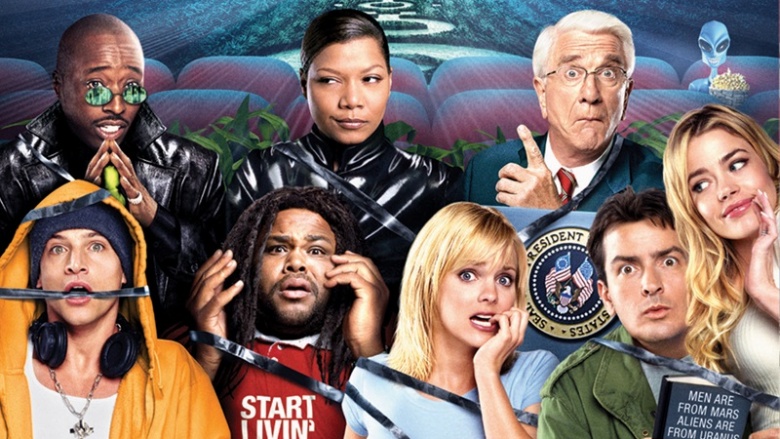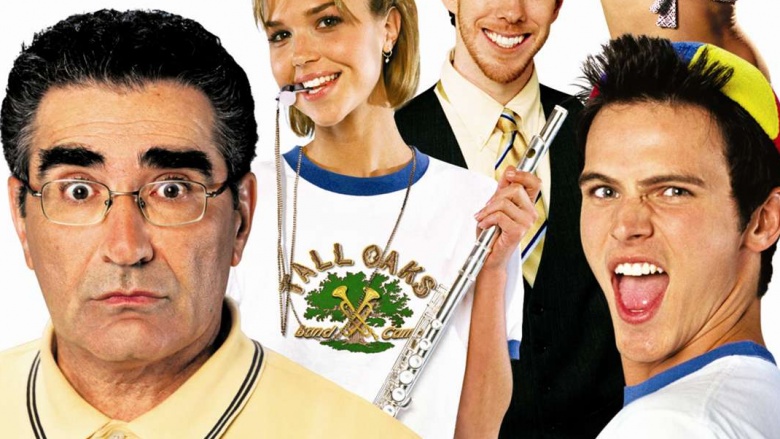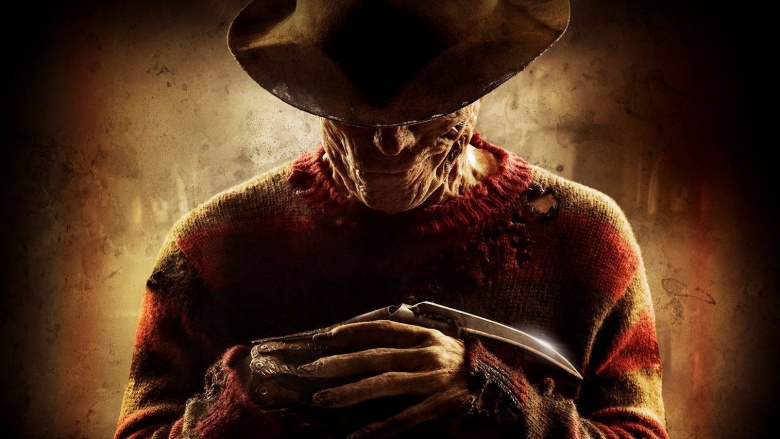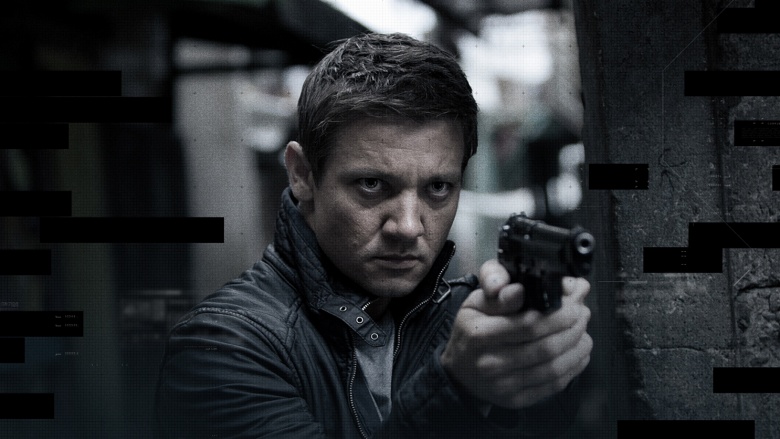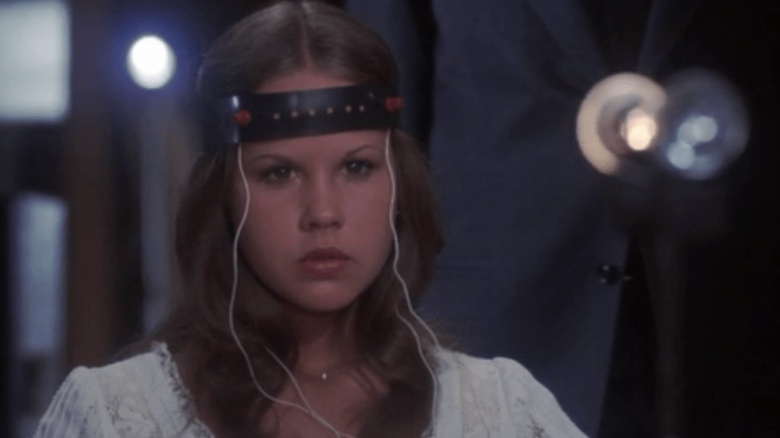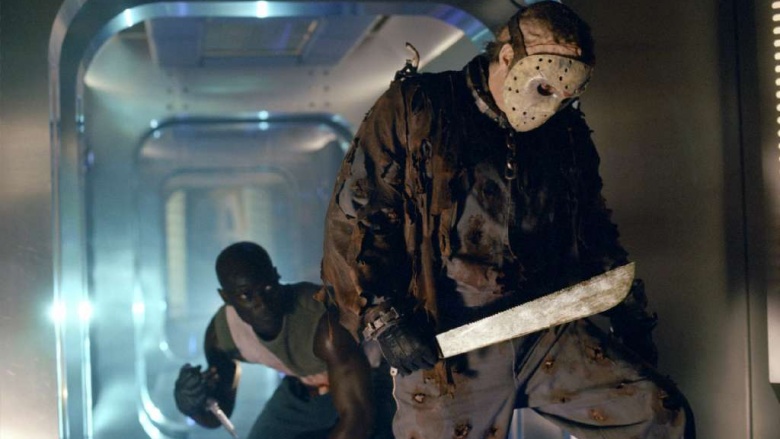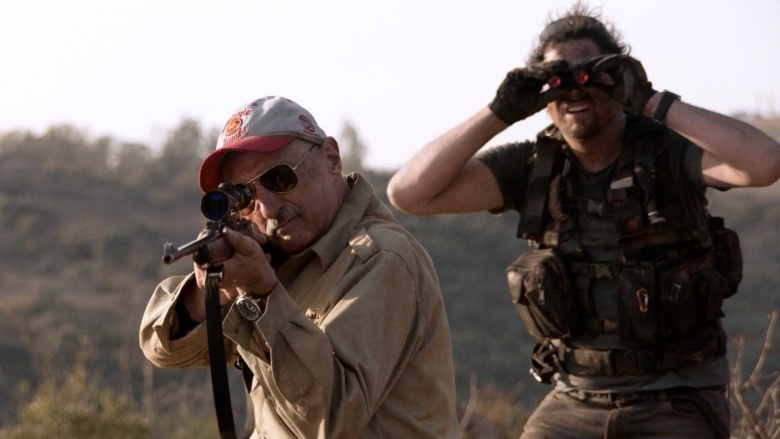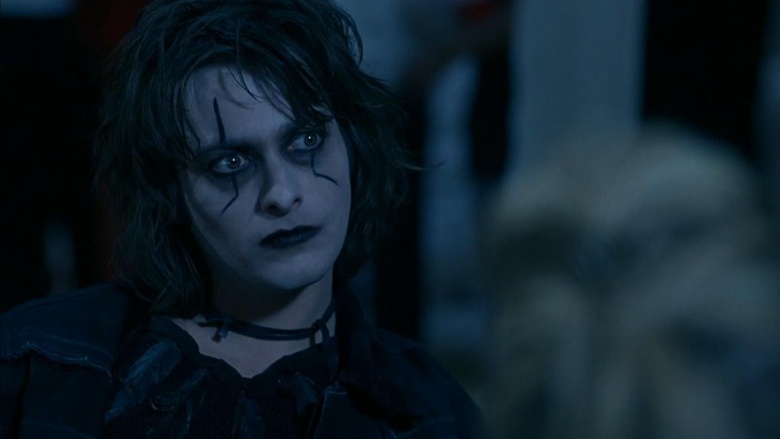Movie Franchises With Unnecessary Sequels
It's a statistical fact that Hollywood just loves to crank out sequels. The number of original films being released has dropped below 25 percent, according to a 2014 study (down from nearly 60 percent in 1984), and there are no signs of that trend changing. Sure, there are always a few great originals that pop up and surprise us all—but a massive percentage of films clogging up the box office are follow-ups to follow-ups. There always seem to just be more giant robots, more knife-wielding killers, and more time-traveling killing machines. So of all the myriad sequels out there, which franchises are the worst offenders?
Transformers
This CGI version of Rock 'Em Sock 'Em Robots has spawned a mind-boggling five films of varying degrees of quality (though most remain on the lower end of the spectrum). While none of the movies are great, it makes sense the popular toy franchise might spawn a movie or two. But five (including the upcoming Last Knight in 2017)? Enough is enough. They ran out of interesting stories a few movies ago, which is made all the more obvious by the fact that explosion maestro Michael Bay decided to semi-reboot the franchise with a new human cast led by Mark Wahlberg in 2014. That effort was big on spectacle, but light on just about anything else (including good reviews).
Regardless, the Transformers movies have accounted for more than a billion dollars at the box office—so those sequels won't be slowing down anytime soon.
Final Destination
The first Final Destination film back in 2000 was a fun little horror movie with a cool gimmick. But stretching that formula out over five films was a bridge too far. The various installments told the stories of (mostly) young adults who miraculously survived a wild accident (massive car pile-up, a plane crash, etc.) thanks to a premonition, only to be hunted down by a vengeful Death. It was fun in the first film, but when the studio tried to build a muddled mythology over Final Destination 2, Final Destination 3 and The Final Destination. Surprisingly, Final Destination 5 was actually pretty clever, serving as a prequel to the first film in an attempt to bring it full circle.
Saw
The brutal, low-budget horror film Saw was a surprise hit—so the studio capitalized quickly and made it a staple of Halloween season for the next several years on the back of six sequels. Turns out the gimmick of tricking people and locking them in death traps doesn't exactly stretch that far. The seventh (and allegedly final) installment, Saw: 3D, made more than $140 million at the box office despite the fact that the critical reception was pretty terrible—so after six years on the sideline, Saw is coming back next year with the semi-reboot Saw: Legacy.
Jurassic Park
The first Jurassic Park film stands as one of the greatest movies ever made, and the semi-reboot Jurassic World in 2015 was one of the biggest movies in history. But the two movies in between? Eh, you're not missing much. Jurassic Park: The Lost World was at least loosely based on a John Crichton novel like the first film, but it still wasn't all that compelling. It attempted to recapture the magic, but not even the return of director Steven Spielberg could make it happen. Joe Johnston stepped in for Jurassic Park III in 2001, which made less money than the two films before it, so the studio shelved the franchise. At that point, it had become too muddled and lost too much luster to continue, and a potential sequel to the original trilogy languished in development hell for years. It took Chris Pratt's sheer charisma, along with a new cast and direction, to finally right the ship in Jurassic World.
Fast and Furious
It's hard to believe it's been 15 years since the first installment in the Fast and the Furious franchise roared into theaters. Though it's become a box-office juggernaut of insane car action, the middle years of the series weren't great—they left Vin Diesel on the bench for 2 Fast 2 Furious, focusing on Paul Walker instead (R.I.P.), then left out pretty much all of the main cast for the spinoff The Fast and the Furious: Tokyo Drift. Amazingly, those duds didn't kill the franchise—but they were enough to make the studio realize that Diesel, and the camaraderie of his character's gang, was what made this franchise run (no pun intended). They reunited the cast and returned to the formula of the first film for 2009's Fast and Furious, then quickly started ramping up the insanity for the three subsequent followups (and counting). It worked: each of the past three sequels have made more money than the prior film—and the franchise shows no signs of slowing down.
Pirates of the Caribbean
There's a reason Pirates of the Caribbean: Curse of the Black Pearl made all the money back in 2003—the movie was a crazy fun pirate romp with likable characters and an easy-to-follow story. But not every movie needs to be a franchise. The next three sequels? They were largely nonsensical and purely self-indulgent. They still made a ton of money (See: The Johnny Depp Factor), but the critical consensus tanked from "Certified Fresh" and kept on sliding all the way through 2011's On Stranger Tides' abysmal reviews. You'd think that'd be enough to stop the bleeding, but Pirates is coming back in 2017's Dead Men Tell No Tales. Here's hoping it gets better, because it'd be hard to get much worse.
Scary Movie
This franchise helped kick off the modern-day spoof genre in 2000, and at the time, it was a fun way to poke fun at horror tropes. But the horror genre has changed a lot in the decade since, and Scary Movie never managed to get any smarter. They stretched the spoofs out for four more films, mostly just doubling the fart jokes and less-than-clever jokes about other movies. Oh, and a boatload of cameos (some notable Scary Movie franchise alums: Charlie Sheen, Kevin Hart, Marlon Wayans, Ashley Tisdale, Anthony Anderson and Anna Farris). The last sequel, 2013's Scary Movie 5, was so bad even original star Anna Farris opted not to return. It was generally considered terrible (and didn't make much money, either). It seems to have been enough to finally but a nail in this spoof coffin. An average grade of 4 percent "Fresh" on review aggregator Rotten Tomatoes will do that.
American Pie
The first American Pie was essentially the pinnacle of the R-rated teen sex comedy genre, and the franchise can essentially be split into two columns. There's the flagship series—spanning the first film, American Pie 2, American Wedding and American Reunion—which follows the A-list (for this series) cast of Jason Biggs, Alyson Hannigan, Eddie Kay Thomas and Seann William Scott. They weren't great, but if you liked the genre and characters, they were fine. But look beyond those and things get dicey. From 2005-2009 (the years between the releases of 2003's American Wedding and 2012's American Reunion), the studio tried to milk the franchise with a few straight-to-DVD sequels. They were, not surprisingly, pretty terrible. These installments typically focused on siblings or cousins tangentially connected to the main cast in lower-budget adventures.
A Nightmare on Elm Street
The first A Nightmare on Elm Street film was a master class in horror, meshing the slasher genre with a psychological thriller that still terrifies teens and adults to this day. But after that the quality starts to wane. Nightmare on Elm Street, Part 2: Freddy's Revenge wasn't great, but the franchise rebounded with A Nightmare on Elm Street 3 – Dream Warriors. The next few sequels were pretty terrible, with the only real highlight being the ultra-meta Wes Craven's New Nightmare in 1994, which brought Freddy into the "real" world to remind us just how scary he could be. But that's about it. A 2010 reboot was a generic disaster, and the franchise has been on ice ever since, though it's worth noting original star Robert England does have a pretty cool idea for a new sequel that would imagine Freddy in different ways within the victims' subconscious. Hey, it couldn't be worse than Freddy's Dead: The Final Nightmare.
The Bourne Identity
The first Bourne film made Matt Damon a legitimate action star, and the trilogy it inspired (The Bourne Identity, The Bourne Supremacy, and The Bourne Ultimatum) was pretty solid. But these movies kept making money, and even after Damon didn't want to come back for another go 'round, the studio booked Jeremy Renner to take up the Bourne mantle as another programmed killer. The movie wasn't terrible, per se, but the story was just wholly unnecessary. To make matters worse, Damon did decide to come back for 2016's Jason Bourne, a.k.a. one of the most forgettable action movies you'll ever see (though that downtown car chase with an armored truck was pretty cool). The trilogy worked, and that's where they should've left it.
The Exorcist
Considering the legacy The Exorcist has in horror circles, it's easy to forget William Friedkin's 1973 horror classic actually inspired four sequels (with two of those essentially the same messed up movie re-cut into entirely different films). Exorcist II: The Heretic tries to pick up after the first film, telling a story that nobody really cared to see. The movie wasn't just bad—it's considered one of the worst films ever made, and Friedkin himself slammed it as an "abomination." The Exorcist III, released in 1990 and set 15 years after the first film (and ignoring the events of The Heretic), wasn't much better. It was butchered in post-production and received generally bad reviews.
But the weirdest Exorcist sequels might be the last two. Exorcist: The Beginning and Dominion: Prequel to the Exorcist were essentially cut from the same film source (an early 2000s sequel starring Stellan Skarsgård, Izabella Scorupco and James D'Arcy), though they turned out to be drastically different movies. Long story short: The studio got cold feet shooting the film, and replaced Dominion producer Paul Schrader with Renny Harlin to completely re-cut the film. That ended with the release of the critically panned Exorcist: The Beginning, so the studio brought Harlin back to finish his vision of the film and released it too. Which is really strange for a Hollywood project. Dominion was better received, but the reviews still weren't great.
Alien
Sci-fi horror doesn't get much better than 1979's Alien and 1986's Aliens. But after that, the franchise went downhill fast. Not every movie is really built to become a franchise, and trying to find a way to keep Sigourney Weaver's Ripley in the middle of the action started stretching credulity by the time Alien 3 rolled around and proved Ripley has the worst luck ever, sticking her on a planet with a xenomorph. Alien: Resurrection jumped forward 200 years and brought Ripley back as a clone, in a film pretty much everyone chooses to forget exists. The franchise returned to life again via the completely nonsensical 2012 prequel Prometheus, and a sequel dubbed Alien: Covenant is set to arrive in 2017. Here's hoping it manages to right the ship.
Scream
The first Scream was a monster hit for a lot of reasons. It was a return to form for horror legend Wes Craven, and turned the slasher genre on its head with a whodunnit story that was extremely fresh in 1996. Scream 2 was arguably better than the original, but they really should've stopped there. By the time Scream 3 rolled around in 2000, it had become the type of movie it used to skewer. It looked like Scream was dead at that point, but it came back to life with Scream 4 in 2011. This one wasn't as bad as Scream 3 (how could it be?), but the general consensus is that it was wholly unnecessary. Looking beyond the film franchise, Scream has since been adapted into an MTV series that's a decent mystery show... but not really true to the horror the franchise once represented.
Terminator
The first two Terminator films are a masterclass in how to make an awesome film, then follow it up with a sequel that's even better than the original. Unfortunately, they just kept making more movies after that. Most everyone has chosen to forget the enjoyably unnecessary footnote that is Terminator 3 in 2003. Then with Terminator Salvation, they somehow managed to mess up a film set in the coolest era of the franchise—the devastated future—with a boring, generic action flick that barely earned its PG-13 rating while wasting the typically excellent Christian Bale as an adult John Connor. But arguably the worst addition is the most recent, Terminator: Genisys—an attempt to reboot the franchise and kick off a new trilogy that ended up a muddled mess and only served to remind us of how good the first two films were.
Batman
He's one of the biggest heroes in comic book history, and a who's who of stars donned Batman's cowl in the '80s and '90s with wildly varying degrees of success. Tim Burton's 1989 Batman and 1992's Batman Returns were masterpieces, but then Burton and star Michael Keaton left the franchise, and the studio decided to go in a more commercial direction by bringing in Joel Schumacher for 1995's Batman Forever and 1997's Batman & Robin. Val Kilmer and George Clooney played the Dark Knight, respectively, and both films were pretty bad—the tone was campy in the worst ways and the casting was as '90s as it gets (see: Alicia Silverstone and Chris O'Donnell). They were so awful they creatively killed the Batman franchise as dead as Bruce Wayne's parents, and it stayed that way for years. Thankfully, Christopher Nolan got things back on track with 2005's Batman Begins, a full-fledged reboot complete with origin story, but even some hardcore fans believe his trilogy was getting a bit tired by the time 2012's The Dark Knight Rises rolled around. Ben Affleck's version of the character is due to get his own standalone feature in the next couple of years; time will tell where it falls on the franchise spectrum.
Friday the 13th
This classic slasher franchise has spawned a dozen films, and a whole bunch of them have been pretty terrible. Although he's always going to be most closely identified with fictional Camp Crystal Lake, between 1980 and 2003, the unstoppable Jason Voorhees has gone everywhere from Manhattan to space—and over the decades, this franchise has gone from a taut thriller set at a summer camp to a positively insane franchise about an unstoppable killing machine who can survive literally everything (even hell itself). Michael Bay produced a reboot in 2009 with hopes of reviving the franchise, but rights issues stymied efforts to follow it up for years. Yet another attempt to restore Friday the 13th to blood-curdling glory—via an "alternate world" take on the hockey-masked slasher and his psycho mom—is scheduled to arrive in 2017.
Tremors
Dig deep and you might remember Tremors, a quirky little 1990 sci-fi flick about the residents of a small town (including Kevin Bacon and Family Ties dad Michael Gross) under siege from crazy sandworm-esque creatures. Based on that description, would you have ever imagined it would spawn five sequels (plus a TV series, with another film in the works)? The premise worked in the self-contained world of the first film, but the four films since have tried to build a full-fledged film universe (the fourth installment was actually a prequel telling the creatures' origin story). Michael Gross, a.k.a. Burt Gummer, has been a recurring presence across pretty much every iteration, but none of the sequels or spinoffs have come close to matching the wacky fun of the original.
The Crow
Apart from the fact that The Crow is a really good movie anyway, it's hard to touch the legacy of a project with so much messy history. The 1994 film became a cult hit, with interest amplified by the fact that star Brandon Lee was tragically killed while shooting the movie, and the studio tried to capitalize with three sequels—all of which quickly got worse as they went along. The first sequel, City of Angels, was a mess, and the final film has a well-deserved zero percent rating on Rotten Tomatoes. Plans for a long-delayed reboot are moving forward to shoot in 2017 with Jason Momoa (Game of Thrones) taking over the title role. Our hopes are high—hey, it can't be any worse than the other sequels.


